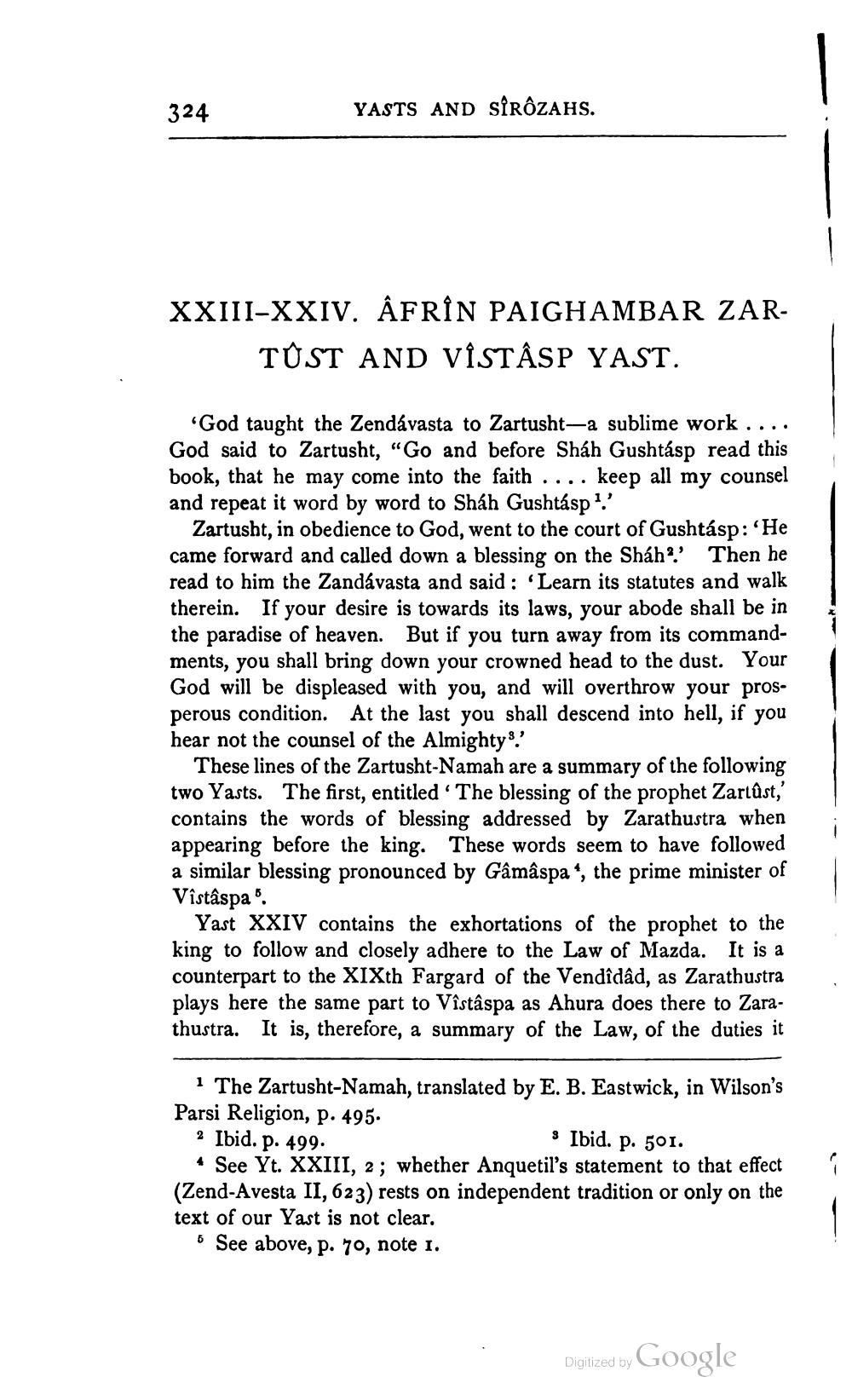________________
324
YASTS AND SÎRÔZAHS.
XXIII-XXIV. ÂFRÎN PAIGHAMBAR ZAR
TŪST AND VISTÂSP YAST.
God taught the Zendávasta to Zartusht—a sublime work .... God said to Zartusht, “Go and before Sháh Gushtásp read this book, that he may come into the faith .... keep all my counsel and repeat it word by word to Shah Gushtásp 1.'.
Zartusht, in obedience to God, went to the court of Gushtásp: ‘He came forward and called down a blessing on the Shah?' Then he read to him the Zandávasta and said : Learn its statutes and walk therein. If your desire is towards its laws, your abode shall be in the paradise of heaven. But if you turn away from its commandments, you shall bring down your crowned head to the dust. Your God will be displeased with you, and will overthrow your prosperous condition. At the last you shall descend into hell, if you hear not the counsel of the Almightys.?
These lines of the Zartusht-Namah are a summary of the following two Yasts. The first, entitled. The blessing of the prophet Zartûst, contains the words of blessing addressed by Zarathustra when appearing before the king. These words seem to have followed a similar blessing pronounced by Gâmâspa “, the prime minister of Vîstâspa".
Yast XXIV contains the exhortations of the prophet to the king to follow and closely adhere to the Law of Mazda. It is a counterpart to the XIXth Fargard of the Vendîdâd, as Zarathustra plays here the same part to Vîstâspa as Ahura does there to Zarathustra. It is, therefore, a summary of the Law, of the duties it
1 The Zartusht-Namah, translated by E. B. Eastwick, in Wilson's Parsi Religion, p. 495. 2 Ibid. p. 499.
3 Ibid. p. 501. - See Yt. XXIII, 2; whether Anquetil's statement to that effect (Zend-Avesta II, 623) rests on independent tradition or only on the text of our Yast is not clear.
6 See above, p. 70, note i.
i
Digitized by Google




